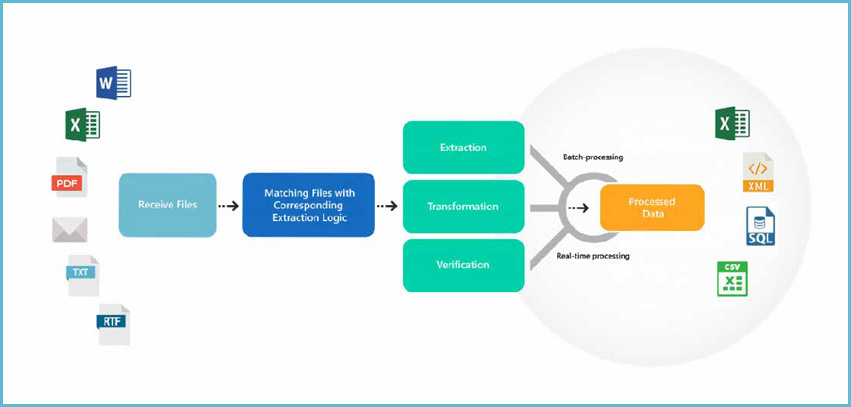
Improving analytical skills is essential in various aspects of life, from problem-solving in everyday situations to excelling in your career. Analytical skills enable you to gather, process, and evaluate information effectively, leading to better decision-making. Here are some key strategies to improve analytical skills :
Critical Thinking:
- Critical thinking is the foundation of analytical skills. It involves examining information objectively, considering multiple perspectives, and questioning assumptions. To enhance this skill, practice by evaluating news articles, research papers, or even everyday conversations critically. Ask yourself why something is presented a certain way and what evidence supports it.
- Problem-Solving Exercises: Engage in problem-solving exercises and puzzles. Sudoku, crosswords, logic puzzles, and strategy games like chess can stimulate your analytical thinking. These activities require you to think critically, plan ahead, and make decisions based on available information.
- Read Widely: Reading a variety of materials, including books, articles, and academic papers, exposes you to different ideas, viewpoints, and writing styles. This broadens your perspective and helps you develop the ability to analyze and synthesize information from diverse sources.
- Data Analysis: Learn how to work with data. This can involve anything from basic data visualization using tools like Excel to more advanced statistical analysis. Understanding data allows you to draw meaningful conclusions and make informed decisions.
- Mind Mapping: Mind mapping is a visual technique that helps you organize and analyze information. Create mind maps to connect ideas, identify relationships, and break down complex topics into more manageable parts. Tools like MindMeister or even pen and paper can be used for this purpose.
- Practice Critical Reading: When reading, make an effort to identify the main argument, supporting evidence, and potential biases in the text. Analyze how the author constructs their argument and whether their reasoning is sound.
- Debate and Discussion: Engage in debates and discussions with others. This forces you to think on your feet, defend your ideas, and consider alternative viewpoints. Constructive debates can sharpen your analytical thinking and communication skills.
- Learn from Others: Seek out mentors or experts in fields that interest you. Observing how they approach problems and make decisions can provide valuable insights into analytical thinking.
- SWOT Analysis: Use the SWOT (Strengths, Weaknesses, Opportunities, Threats) analysis framework to evaluate situations, projects, or even personal goals. This structured approach helps you systematically assess different aspects and make informed choices.
- Continuous Learning: Stay curious and committed to lifelong learning. The more you learn, the more you have to analyze. Take courses, attend workshops, and explore new subjects to continually challenge and expand your analytical skills.
- Practice Patience: Rushing through analysis can lead to errors or missed opportunities. Take your time to gather information, consider options, and evaluate outcomes thoroughly.
- Document Your Analysis: When working on complex problems or decisions, document your thought process. This can be in the form of written reports, diagrams, or spreadsheets. This not only helps you clarify your thinking but also allows others to follow your reasoning.
- Feedback: Seek feedback on your analytical work from peers or mentors. Constructive criticism can help you identify areas for improvement and refine your skills.
- Stay Organized: Keep your thoughts, notes, and data well-organized. This ensures that you can access information quickly and efficiently when you need it.
- Real-world Application: Apply your analytical skills to real-world problems and projects. Practical experience will reinforce your learning and help you identify areas where you can improve.
Improving analytical skills is an ongoing process that requires dedication and practice. By incorporating these strategies into your daily life, you can become a more effective thinker, problem solver, and decision maker. Remember that progress may be gradual, but each step you take will bring you closer to becoming a more analytically adept individual.
Recent Posts
- Vedanta Zambia Revives Copper Mining While Strengthening Economic Ties
- Essar Merino Laminates Teams up with Green Line to Achieve Sustainability in the Laminate Sector
- Hire Bspoqe Associates for Indian Style Small Modular Kitchen Design
- Empowering Financial Success: Jamie McIntyre’s Contributions to Bali
- 24/7 Support for Premature Babies and New Mothers in Delhi NCR
Recent Comments
No comments to show.
Related

a
aditi rajput
0
0
How You Can Bring Accuracy and Security When You Outsource Data Extraction Services
October 13, 2024
Save

a
aditi rajput
0
0
63 moons - The success story called ‘innovation in the fin-tech arena’
July 1, 2024
Save

@
@Kuldeeprajput98
0
0
Indian Automotive Industry Embraces Electric Vehicles for a Sustainable Future
October 24, 2023
Save

a
aditi rajput
0
0
6 Simple & Effective Ways to Nurture Your Customer Relationships
October 13, 2023
Save
More By Author

a
aditi rajput
0
0
Vedanta Zambia Revives Copper Mining While Strengthening Economic Ties
August 25, 2025
Save

a
aditi rajput
0
0
Essar Merino Laminates Teams up with Green Line to Achieve Sustainability in the Laminate Sector
January 7, 2025
Save

a
aditi rajput
0
0
Hire Bspoqe Associates for Indian Style Small Modular Kitchen Design
December 26, 2024
Save

a
aditi rajput
0
0
24/7 Support for Premature Babies and New Mothers in Delhi NCR
November 20, 2024
Save
